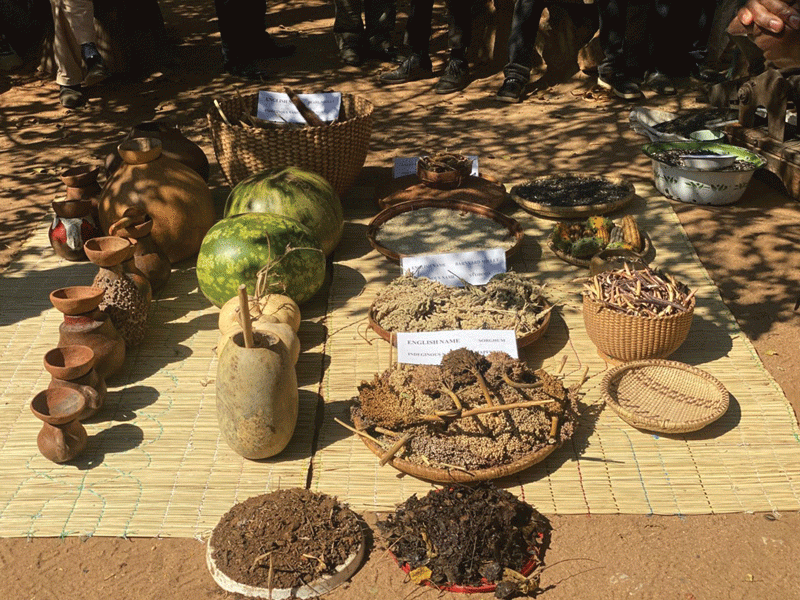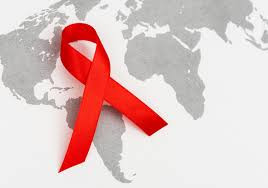
IN the dry Masvingo province, women in the Shashe area are demonstrating remarkable resilience in the face of challenging climatic conditions.
They have adopted agroecological practices to mitigate the adverse effects of climate change and ensure food security for their families and communities.
Elizabeth Mpofu (63), is cultivating more than just crops; she’s growing a movement.
A globally respected agroecologist, pioneer in sustainable farming and advocate for seed and food sovereignty, Mpofu’s journey from smallholder farmer to international ambassador reflects a lifetime of dedication to building food systems that prioritise people, the planet and traditional knowledge.
“I am one of the founding members of the Shashe Agroecology School and before that, I was the former and founding chairperson of the Zimbabwe Smallholder Organic Farmers Forum [ZIMSOFF],” Mpofu said.
“ZIMSOFF is a member of a global peasant movement called La Via Campesina, which I coordinated for eight years from 2013 to 2021, representing global peasants, small-scale farmers, fisher folks and the majority who are truly the minority, the poor at large.”
In 2016, the United Nations Food and Agriculture Organisation named her a special ambassador for the International Year of Pulses, a role that led her to co-found the Women's Collaborative for Healthy Food Systems.
“All in all, I am also a woman who is passionate about farming, especially considering agroecology farming practices, which led to the formation of the Agroecology School,” Mpofu said.
- Villagers fight climate change through smart agric
- Minister dragged to court over chieftainship
- Another teenager dies giving birth at shrine
- Health talk: GZU School of Medicine boon for Masvingo
Keep Reading
During my term of office, I had an opportunity to visit many countries where La Via Campesina had members.
La Via Campesina had that momentum of coming up with agroecology schools where farmers come together and share their experiences, their challenges and also strategise on how to adapt to climate change," she said.
“This is how we also thought it was important for us to form this agroecology school, where we gather ourselves, the rest of the surrounding communities and others who are coming from far away, to exchange ideas, to see how best we can adapt to climate change, how best we can advise each other and also to come up with strategies, and ideas on what crops to grow, especially in our regions."
Agroecology involves sustainable farming practices that work with nature to improve soil health, conserve water, and increase biodiversity. Women like Mpofu have embraced agroecology techniques such as zero tillage, which minimises soil disturbance, and the use of drought-resistant crops like sorghum, millet, and cowpeas. These practices help to maintain soil fertility and reduce the need for chemical inputs, making farming more sustainable and less labour-intensive.
“For one to be an agroecologist, you have to have small livestock, which includes goats, sheep, cattle, chickens, pigs, all sorts of those small livestock, so that you can have good manure to feed your farm. So this is how I'm practising agroecology,” Mpofu said.
“With the advice of other farmers who have knowledge and training about agroecology, I’ve learned quite a lot, especially on the conservation part of it, where I also have to capture the little water I receive on my farm. So I have also learned water harvesting techniques, which I have applied on my farm. This includes those beds and also the small dams, which I also use to capture the water I've just received," she said.
Created in 2002, ZIMSOFF envisions improved livelihoods for organised and empowered smallholder farmers in Zimbabwe who practise sustainable and viable ecological agriculture.
Its mission is to influence policies and public awareness towards agroecology and smallholder farmers' rights.
Women in agroecology from different districts recently gathered at the Shashe Agroecology School to share their success stories and learn how Mpofu has transformed her farm since arriving in Shashe in 2000 during the land reform programme. They also got a sneak peek into Mpofu's farm, which has since been named a centre of excellence.
Julliet Hove, 62, from Zvishavane, shared her experience, "Before knowing of agroecology, we were used to farming with fertilisers, not knowing that it was damaging the soils. We were now used to handouts and farming with fertilisers to an extent that the soil was no longer suitable for farming. I never knew that there was sustainable farming until I visited Shashe Agroecology School, where we were imparted with knowledge on how agroecology improved the soils through the use of organic matter, manure and readily available livestock waste."
Hove added: “During my tour at Mpofu’s centre of excellence, I learned the importance of water harvesting as I saw that it helps to trap water and save it from running off. I also learned about bio-fertilisers, which consist of chicken waste, cow waste and other livestock waste, showing our inputs are always at our disposal.”
Hove urged other women to partake in agroecology, assuring them of bumper harvests.
According to the African Women’s Collaborative, seeds are the beginning of any farmer’s journey; those small grains hold the promise of a food-secure future.
Mpofu does not buy seeds she preserves her own in seed banks and also shares them with other farmers. She has developed innovative ways to preserve her seeds, keeping them in jars and even underground, mixed with preservatives such as ash and sand.
Tawonga Pasurai, 52, from Gutu, remarked: “Agroecology has no expenses; the wallet that gets in money is bigger than the wallet that gets out money, as the inputs are readily available at our disposal and surroundings.”
“We were introduced to Bokashi composting by ZIMSOFF, which is a method of fermenting food waste using a bucket. It ferments food waste instead of allowing it to rot. Once the food waste has been fermented, it is converted into compost by mixing with garden waste, which helps to fertilise the soil,” Pasurai said.
“We were also introduced to a new seed called the barnyard millet. Last season, I planted 500 grammes of barnyard millet at my farm and managed to harvest two 20L buckets, which I am now selling for profit to other farmers. For each 500g, I am selling it at US$5. I have made profit from it and I thank ZIMSOFF for this seed," she said.
“Through agroecology, we have conserved landscape regeneration, wetlands and forests, and we are now following our culture that our forefathers started.”
According to the UN Food and Agriculture Organisation, approximately 70% of the population of Zimbabwe relies on subsistence agriculture for their livelihoods.
Bertha Dekete (58), from Great Zimbabwe, who ventured into agroecology in 2003, stated that field visits have been helpful throughout her journey. "During field visits and seed festivals, if we found out that another cluster had a different seed, we would exchange the seed and also try it out on our lands, thus having a variety of seeds. These visits have also equipped me with knowledge on how to create a seed bank, just like Mpofu’s, which has a variety of seeds in jars,” she said.
Zimbabwe has been grappling with the effects of climate change, including erratic rainfall, water scarcity and extreme weather patterns. Most smallholder farmers struggle to produce enough to feed their families.
Statistics provided by the World Food Programme show that during the lean season of 2022-23, more than 3,8 million people in rural areas faced food insecurity.
At the same time, farming traditions in the country are social and co-operative; farmers help each other during the growing season to ensure everyone has good yields. This co-operative spirit is the foundation on which the agroecology movement grew.
“Since we came here in 2000, I”ve never gone to a shop to buy seeds or fertiliser, because when we came here, we had that goal of reviving our traditional norms of farming,” Mpofu said.
“Now I can compare when I was growing up, where my parents were also farming, because they were using synthetic fertilisers, which for me, after realising that they can be a burden to us, I didn’t want to use. But with what I'm producing now, I manage to harvest enough to feed my family and also to have some surplus to take to the markets. And one important thing, which is the good part of what we are growing, our food crops are healthy.”
Farmers in Zimbabwe were also affected by El Niño. According to Unicef, El Niño caused severe drought in Zimbabwe, leading to widespread crop failure, water shortages and a resultant food and nutrition crisis, with an estimated 7,6 million people requiring urgent humanitarian assistance in 2025, including 3,5 million children.
For Mpofu, however, El Niño was a blessing in disguise.
“For us, when El Niño came, it was a big advantage, because this is where we had to open our minds and see how best we could produce enough food without any challenges. In some areas it disturbed quite a lot with some people being left homeless, without food, shelter,” she said.
“It’s a pity that they had to suffer those consequences. But also I think it is a way of showing how important agroecology can be, not necessarily depending on these commercial farming practices,” Mpofu said.
The agroecology initiative has also been applauded by headman Happymore Mudyahoto of Shashe, under Chief Bere, who noted that women can now be independent and have been given a chance to shine through agroecology.
“In the coming years, we want to see indigenous and peasant women securing contracts to provide locally-produced food to schools and local markets on a larger scale,” Mudyahoto said.
The ZIMSOFF is one such initiative that promotes organic farming and agroecological practices among smallholder farmers.
Through training and capacity-building programmes, ZIMSOFF has helped farmers to adopt sustainable practices that enhance productivity and resilience. Farmers involved in ZIMSOFF programmes have reported improved soil health, higher crop yields and greater food security.










